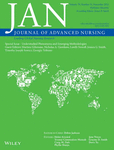
Continuous low pressure suction does not reduce blood loss following TKA

Continuous low pressure suction does not reduce blood loss following TKA
Low- vs. high-pressure suction drainage after total knee arthroplasty: a double-blind randomized controlled trial
J Adv Nurs. 2012 Apr;68(4):758-66. doi: 10.1111/j.1365-2648.2011.05760.x. Epub 2011 Nov 14Did you know you're eligible to earn 0.5 CME credits for reading this report? Click Here
Synopsis
169 patients scheduled for total knee arthroplasty were randomized to receive a low- or high-pressure closed drainage system after surgery to determine if a lower suction power would reduce the total postoperative blood loss following the procedure. Blood loss following surgery was assessed until bleeding had ceased. The results indicated that there was no difference between groups in the amount o...
To view the full content, login to your account,
or start your 30-day FREE Trial today.
FREE TRIAL
LOGIN
Forgot Password?
Explore some of our unlocked ACE Reports below!

Learn about our AI Driven
High Impact Search Feature
Our AI driven High Impact metric calculates the impact an article will have by considering both the publishing journal and the content of the article itself. Built using the latest advances in natural language processing, OE High Impact predicts an article’s future number of citations better than impact factor alone.
Continue



 LOGIN
LOGIN

Join the Conversation
Please Login or Join to leave comments.